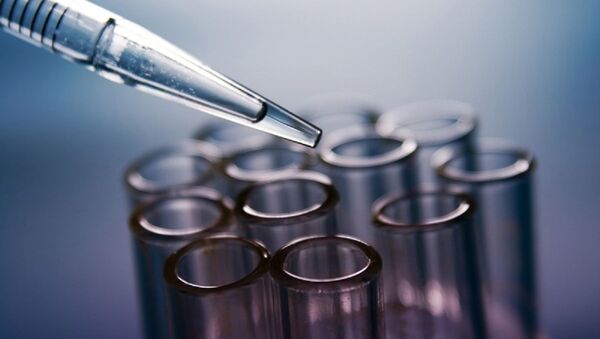MOSCOW, October 17 (RIA Novosti) - Scientists from the University of Bristol, UK, have shown how bacteria is able to destroy antibiotics, in what is considered a breakthrough in developing new drugs for resistant bacteria, according to a report published by the university Friday.
"Researchers at the University of Bristol focused on the role of enzymes in the bacteria, which split the structure of the antibiotic and stop it working, making the bacteria resistant," the University's report stated.
The breakthrough could enable scientists to develop antibiotics which bacteria, in particular E. coli, find much harder to develop a resistance to.
The scientists at Bristol used a technique referred to as QM/MM (quantum mechanics/molecular mechanics simulations), a Nobel Prize winning technique, in order to uncover how bacteria "spits out" broken down antibiotics. If the "spitting out" process happens quickly, the bacteria becomes resistant but if it happens slowly, then the bacteria is likely to die, explains the report.
"This means that these simulations can be used in future to test enzymes and predict and understand resistance. We hope that this will identify how they act against different drugs, a useful tool in developing new antibiotics and helping to choose which drugs might be best for treating a particular outbreak," Professor Adrian Mulholland, from Bristol University's School of Chemistry was quoted as saying in the report.
According to the World Health Organization, antibiotic resistance is an increasingly serious threat to public health, with 450,000 new cases of drug-resistance to tuberculosis alone in 2012. Other deadly infections that pose a threat due to drug resistance are pneumonia, gonorrhea and urinary tract infections.

